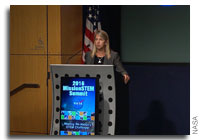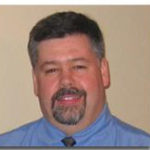Available Now: NASA MissionSTEM Summit 2016 Opening Session and Keynote Address

NASA MissionSTEM Summit 2016 – Opening Session and Keynote Address, NASA
“For two days, experts in civil rights compliance and education will discuss best practices for ensuring equal opportunity in science, technology, engineering and math (STEM), and exchange ideas for tackling the challenges faced by grantee institutions and compliance officials. The summit is designed to take NASA’s civil rights technical assistance efforts relating to STEM to a new level.”
“Special guest speakers at this opening session include NASA Deputy Administrator Dava Newman, Tina Tchen, assistant to President Obama and chief of staff to the First Lady, and Jo Handelsman, associate director for Science in the White House Office of Science and Technology Policy.”
Previous:
– Update: Stealth NASA STEM Event is Actually A Stealth Sexual Harassment Event
– Dava Newman’s Mission STEM Conference Still In Stealth Mode
– Dava Newman Announces Stealth STEM Conference









Does anyone think it is at all peculiar that this STEM, EEO, anti-harassment conference appears to be an all female conference with an all female cast of characters?
I think that it is par for the course for this topic. Many of the harassment and interpersonal conflict models start with the assumption that men are perpetrators and women are victims (Duluth model).
Availability of and performance in STEM education is a nationwide problem. Providing better resources for science education in all public schools and reducing tuition at public colleges and universities may be more effective ways to improve access to technical careers for students who are personally disadvantaged.